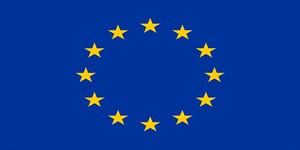European legislators call for Google's break-up
November 24, 2014 | 10:58
Companies: #europe #european-commission #european-parliament #google

European legislators have called for Google to be broken up into separate companies, following long-standing belief that the company operates a monopoly in the region.
Google was originally founded as a search engine company, but found its route to financial success in advertising. Now, it operates one of the biggest advertising networks on the planet and makes the overwhelming majority of its income from said advertising infrastructure - aided, naturally, by its 'free' services like the Android and Chrome OS platforms, Google Drive, Google Mail, Google Maps and the like, which unapologetically mine their users' data for insights that are of value to the advertisers who are the company's true customers.
With fingers in so many pies, however, it's no surprise to find that there are those who believe the company operates a monopoly. The European Union has been running a case against the company since 2010 accusing it of monopolistic practices in the search and advertising fields, but with several settlement offers having been rejected some legislators are calling for the company to be broken up - to become, in essence, its own competition.
In the New York Times' write-up on the case, the proposed resolution is described as non-binding - in that it is made by the European Parliament, which does not directly control antitrust policy in the region, and that the document may yet undergo revision to remove its indirect reference to Google in a section calling for the European Commission to 'consider proposals with the aim of unbundling search engines from other commercial services.' If it goes ahead as-is and meets with approval, however, Google could be forced to split into separate companies - in addition to a billions-strong fine - or cease operating in Europe altogether.
The resolution deals exclusively with Google's search and advertising divisions, which would be split into two separate companies if the resolution is ratified. A separate case before the European anti-trust legislators dealing with Google's Android business is not included in the resolution as it stands.
Google was originally founded as a search engine company, but found its route to financial success in advertising. Now, it operates one of the biggest advertising networks on the planet and makes the overwhelming majority of its income from said advertising infrastructure - aided, naturally, by its 'free' services like the Android and Chrome OS platforms, Google Drive, Google Mail, Google Maps and the like, which unapologetically mine their users' data for insights that are of value to the advertisers who are the company's true customers.
With fingers in so many pies, however, it's no surprise to find that there are those who believe the company operates a monopoly. The European Union has been running a case against the company since 2010 accusing it of monopolistic practices in the search and advertising fields, but with several settlement offers having been rejected some legislators are calling for the company to be broken up - to become, in essence, its own competition.
In the New York Times' write-up on the case, the proposed resolution is described as non-binding - in that it is made by the European Parliament, which does not directly control antitrust policy in the region, and that the document may yet undergo revision to remove its indirect reference to Google in a section calling for the European Commission to 'consider proposals with the aim of unbundling search engines from other commercial services.' If it goes ahead as-is and meets with approval, however, Google could be forced to split into separate companies - in addition to a billions-strong fine - or cease operating in Europe altogether.
The resolution deals exclusively with Google's search and advertising divisions, which would be split into two separate companies if the resolution is ratified. A separate case before the European anti-trust legislators dealing with Google's Android business is not included in the resolution as it stands.

MSI MPG Velox 100R Chassis Review
October 14 2021 | 15:04








Want to comment? Please log in.